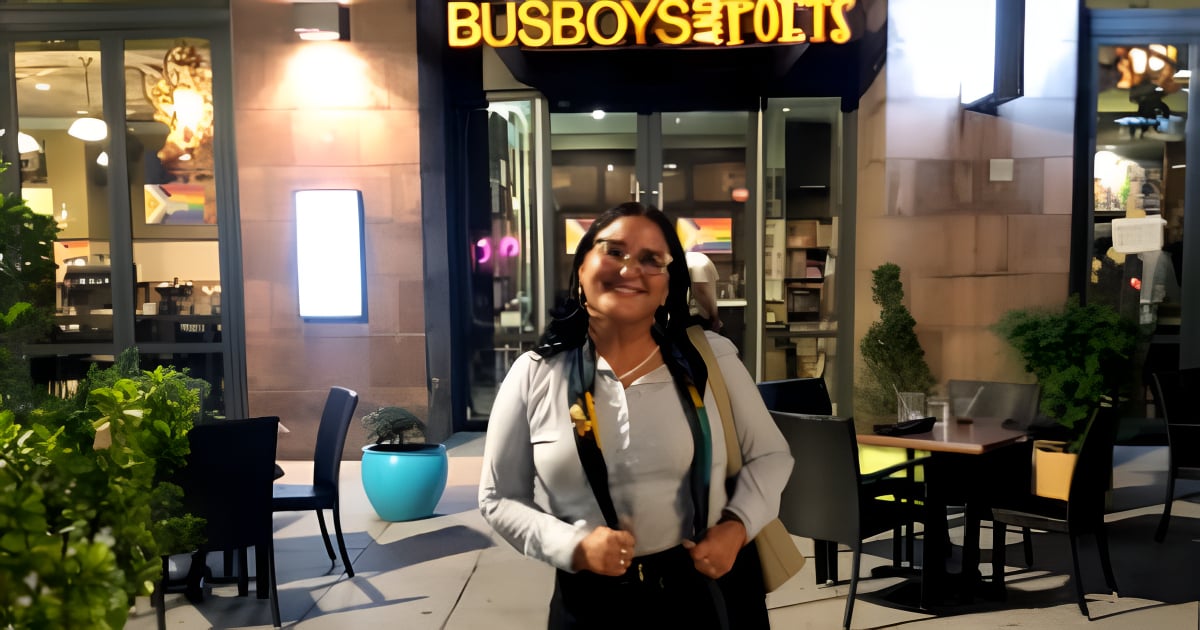The recent response from the Cuban regime to the U.S. government's new immigration restrictions has sparked widespread criticism, highlighting the deep-seated hypocrisy of the official discourse. Johana Tablada de la Torre, the Deputy Director General for the United States within the Cuban Ministry of Foreign Affairs, resorted to irony when addressing these new measures.
"When does the 'nice conversation' about canceling visas for almost all Cubans begin?" she posted on social media, referring to a recent comment by U.S. diplomat Mike Hammer, who expressed his hope for a "nice conversation" with Cubans during his visits to Havana. While not directly naming him, her remarks were a thinly veiled critique of Hammer, with whom Tablada de la Torre has frequently clashed since his arrival on the island.
Meanwhile, Cuban Foreign Minister Bruno Rodríguez Parrilla expressed "concern" over the impact on Cuban citizens' rights, conveniently ignoring the central role the regime has played in decades of repression, censorship, and tight control over citizens’ freedom of movement.
The executive order signed by President Donald Trump that imposed these immigration restrictions on several countries, including Cuba, cited national security risks and a lack of cooperation on immigration matters. Following the announcement, Cuban authorities reacted aggressively, labeling the measure as "racist" and accusing Washington of dividing Cuban families.
However, the Cuban government's outrage appears disingenuous considering its history. Since 1959, the regime has wielded migration as a political weapon, pressuring the United States with mass migration waves—such as the Mariel boatlift in 1980 or the 1994 raft crisis—while internally punishing those attempting to flee.
Thousands of Cubans have faced persecution, imprisonment, or stigmatization for wanting to emigrate, and those who manage to leave are often used as emotional and economic leverage through the regime's control over their families left behind.
In lamenting on social media that "from one day to the next, they can no longer visit or emigrate to the United States," diplomat Tablada de la Torre seemed to forget that for decades, the regime she represents enforced the notorious "exit permit" or "white card," restricting citizens’ ability to leave for ideological or political reasons.
The Regime's Cynical Stance on Family Separation
The so-called defense of "family contact" starkly contrasts with the regime’s systematic practice of inducing family separation from a position of power. While the regime speaks loudly of sovereignty and rights, it bans the return of dissidents, monitors those who come back from visits, and suppresses students or workers suspected of having "ties with the enemy."
Cuban citizens have taken to social media to voice their criticisms. Many reminded the Foreign Minister of the regime's historical disregard for Cuban families, pointing out that the government is the main culprit behind the exodus of over half a million Cubans by 2024, according to independent estimates.
Behind the official rhetoric lies the true objective: to maintain the flow of dollars from the diaspora and project a false image of international victimhood while perpetuating repression within the island.
The Cuban Regime's Hostility Toward Mike Hammer
Since his arrival in Havana in November 2024 as the head of the U.S. diplomatic mission, Mike Hammer has faced an orchestrated campaign of hostility from the Cuban regime, spearheaded by Tablada de la Torre from the foreign ministry.
She has accused Hammer of promoting internal destabilization in Cuba, lying about the country's situation, and violating the Vienna Convention on Diplomatic Relations. Tablada de la Torre labeled the diplomat as meddlesome for meeting with Cuban civil society members, claiming his actions are part of an "agenda of aggression and interference" contrary to Cuba's constitutional order.
She even publicly warned Hammer that "no one should mistake the patience Cuba has shown towards such acts for weakness," in a veiled threat broadcasted through state media.
The regime has ramped up its media and diplomatic attacks against Hammer, accusing him of inciting Cubans to commit serious crimes and acting against the constitutional order. These actions reflect a growing anxiety over the direct and open diplomatic strategy that Hammer has implemented since arriving on the island.
Despite the criticisms and accusations, Hammer has continued his agenda in Cuba, reaffirming his interest in directly hearing from the Cuban people and strengthening grassroots ties between the two countries. The U.S. State Department has defended Hammer, asserting that his role is legitimate and aligns with international law, reiterating its commitment to human rights and Cuban civil society.
Understanding U.S. Visa Restrictions for Cubans
What prompted the U.S. to impose visa restrictions on Cubans?
The visa restrictions were part of an executive order by President Donald Trump, citing national security concerns and a lack of cooperation on immigration matters.
How has the Cuban regime historically used migration as a political tool?
Since 1959, the Cuban regime has used migration as a political weapon, orchestrating mass migration waves to pressure the United States, while internally punishing those seeking to emigrate.
What has been the Cuban government's reaction to the U.S. restrictions?
The Cuban government has condemned the restrictions as "racist" and accused the U.S. of separating Cuban families, despite its own history of restricting emigration.
Who is Mike Hammer and why is he targeted by the Cuban regime?
Mike Hammer is the head of the U.S. diplomatic mission in Havana. The Cuban regime targets him due to his open diplomacy strategy and engagement with Cuban civil society, which it sees as a threat.
